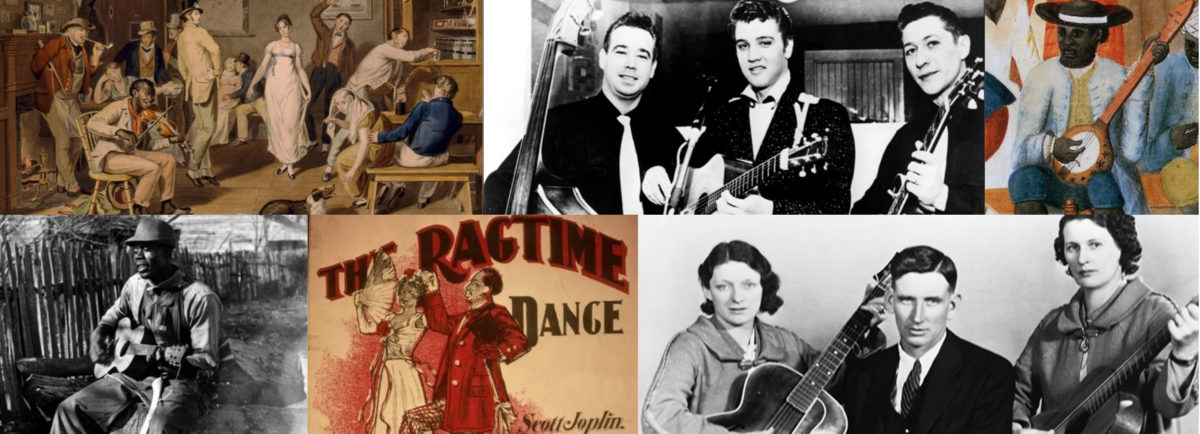Audio Investigation Slide
If You Miss Me From the Back of the Bus: Audio Investigation Slide
-
- Click the link above to launch the slide deck (2 slides).
- Invite students to respond to the following questions shown on slide #1:
-
- What is the difference between prejudice, discrimination, and segregation?
- Did segregation exist outside of the South?
- How did Black people challenge prejudice, discrimination, and segregation in the U.S. after the Second World War?
-
- After allowing a brief period for students to answer, share student responses and clarify definitions and/or misconceptions as necessary. Students may be uncertain or they may disagree about the answer to the second question, but you may choose to wait until after playing the song and discussing it to provide the correct answer.
- Advance to slide #2.
- Click the media player in the bottom right corner of the slide to begin audio playback of the song.
- Invite students to respond to the following prompt shown on slide #2:
-
- Identify or describe as many of the incidents portrayed in the song as you are able.
-
- After allowing a brief period for students to answer, share student responses, and review the incidents with the students. Most likely, students will answer correctly for verses 1, 4, and 5. Some students may infer a correct answer for verse 2 without knowing the specifics. For verse 2, explain that the song was written after a Black man, who was denied the right to use a public swimming pool in Cairo, Illinois, drowned while swimming in the Mississippi River. Point out that Illinois is located in the North, not the South, as a means of clarifying the correct answer of the second question. For verse 3, identify Jackson State and Ole Miss and explain briefly the story of James Meredith.
Recommendations
This song is useful to introduce a lesson on the Civil Rights movement. Although students may be familiar with some of the most notable events and figures of the movement, the stories behind some of the lyrics are likely new to them, and provide a springboard for discussing the topic with greater depth and complexity than they may have done previously .
If de jure and de facto segregation are not already vocabulary terms that students know, display or project the definitions, and explain that the first was practiced throughout the South, while the second was very common throughout the North. The segregation of swimming pools in Illinois that is referenced in verse 2 is one example you can cite, as well as examples of segregation in housing and education that were not mandated by law, but were the reality for many Black people in northern states. This is an opportunity to address racial prejudice, discrimination, and segregation as national problems, which will provide a solid foundation for further lessons on the evolution of the Civil Rights movement into the late 1960s and beyond.
If civil disobedience is not already a vocabulary term that students know, you can make a clear association between the protest activities of the Civil Rights movement that they may already be familiar with. Students can use this prior knowledge as a foundation for researching other events that they may not be as familiar with, including the lunch counter protests, the march from Selma to Montgomery, and the Freedom Rides, and evaluating the effectiveness of civil disobedience.
Covering the content above provides a basis for discussing the federal government’s role in dismantling discriminatory policies and segregation mandated by southern state governments, as well as resistance to those efforts, and the limitations of federal action in addressing continued de facto segregation. It may be helpful in those discussions to distinguish between civil rights and civil liberties so that students are better able to understand the means by which the federal government offers protection for both.
Vocabulary
Jackson State – a public, historically black university in Jackson, Mississippi; one of the largest HBCUs in the United States and the fourth largest university in Mississippi
Ole Miss – Nickname for the University of Mississippi, a public university that is the largest in the state in terms of enrollment; integrated in 1962 (following a lawsuit) with the admission of James Meredith, a U.S. Air Force veteran, who transferred there from Jackson State
Additional Resources
Primary Source Strategies
Printable worksheets with response prompts that guide students in analyzing songs as primary sources.

